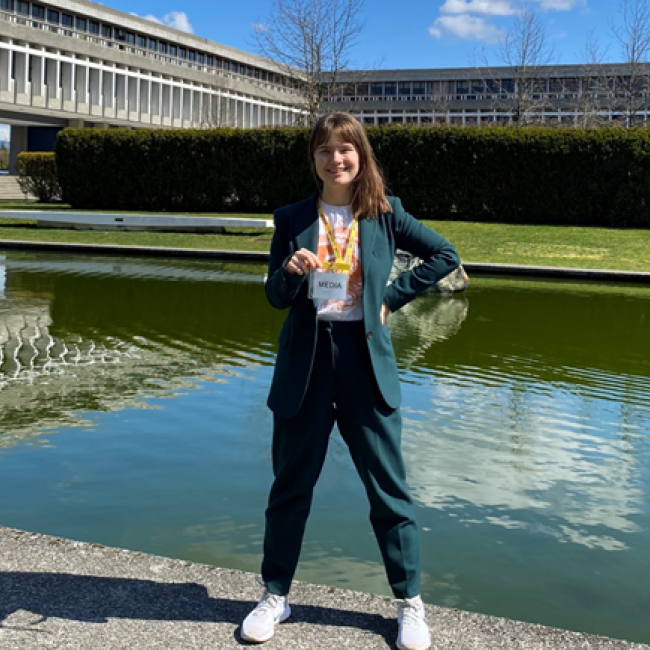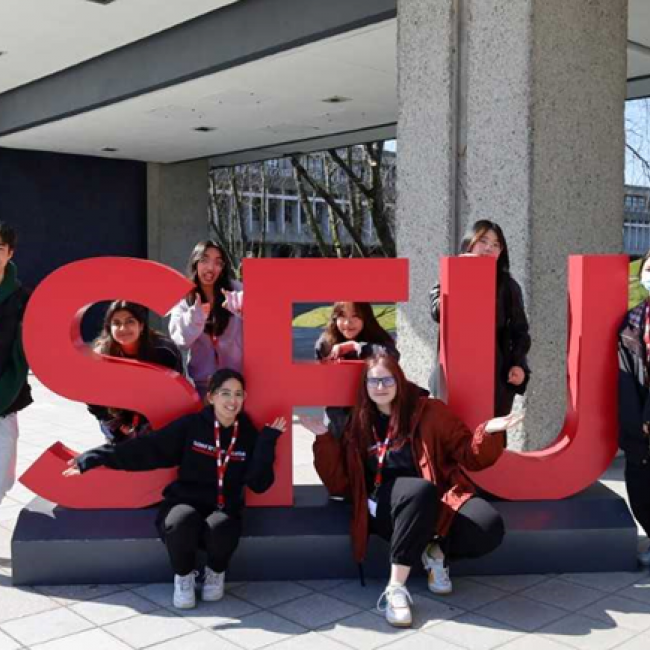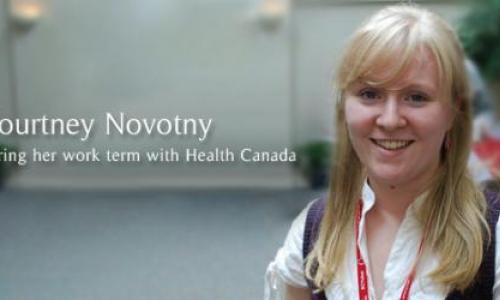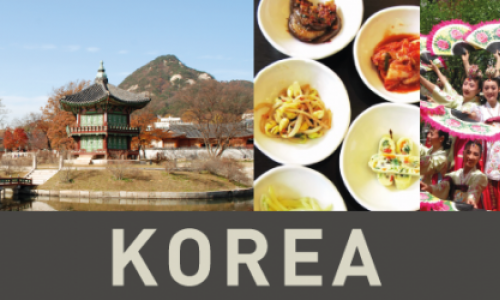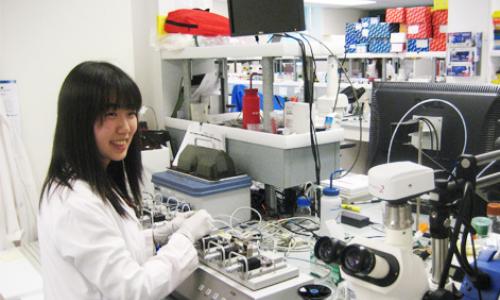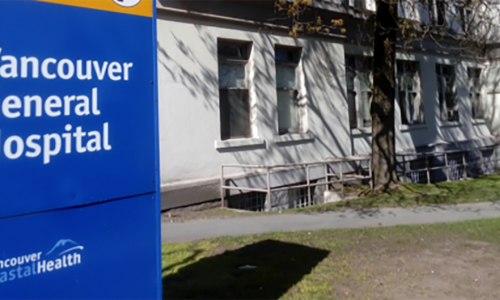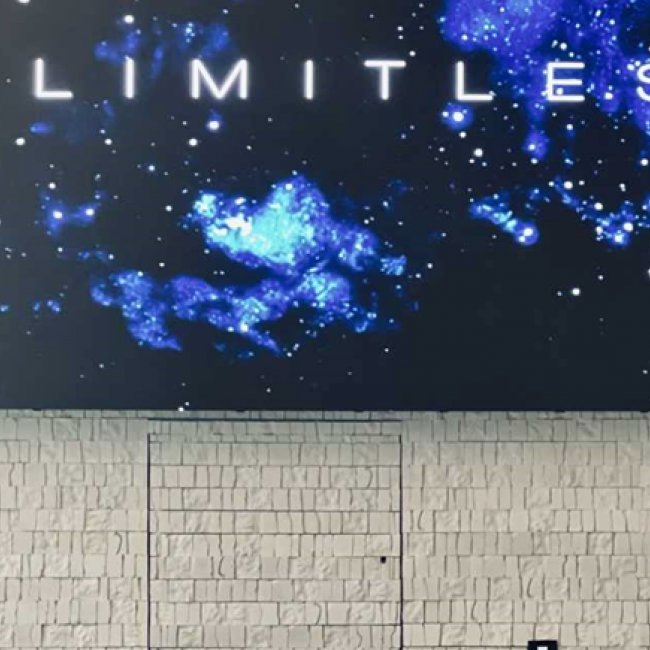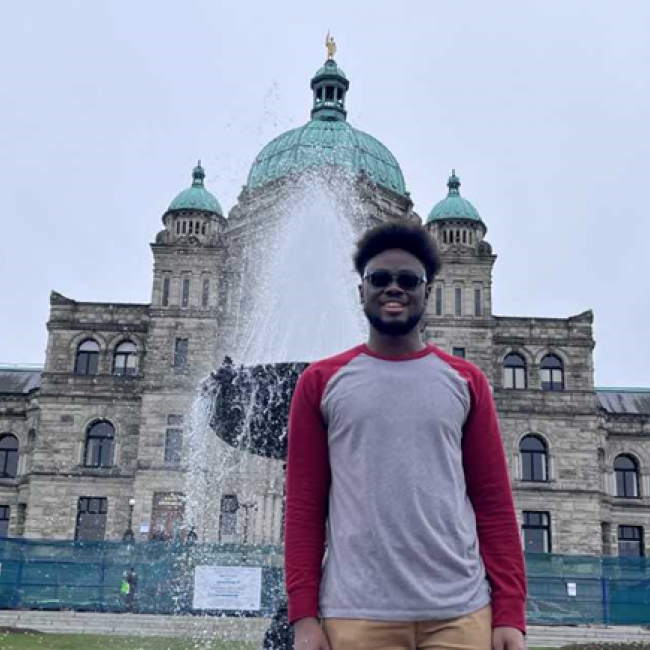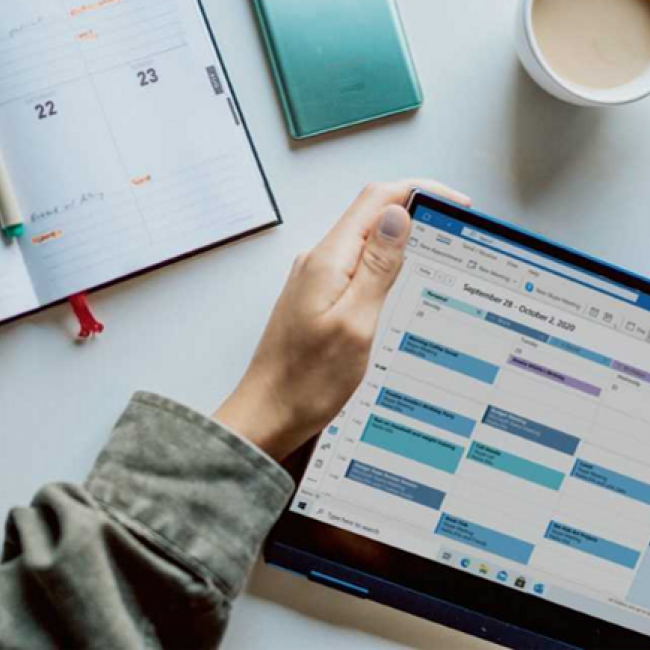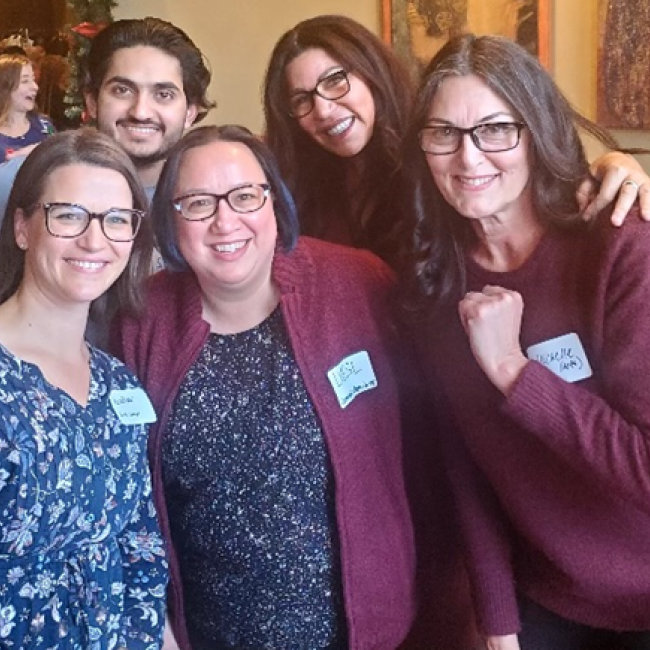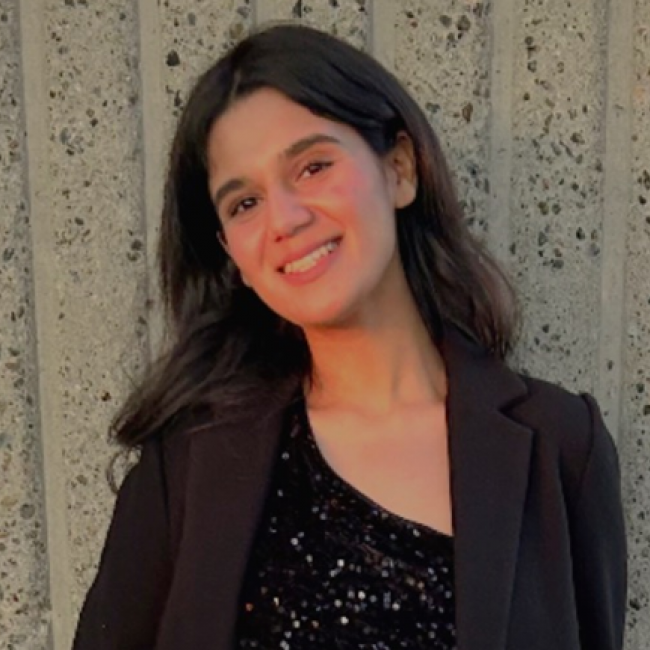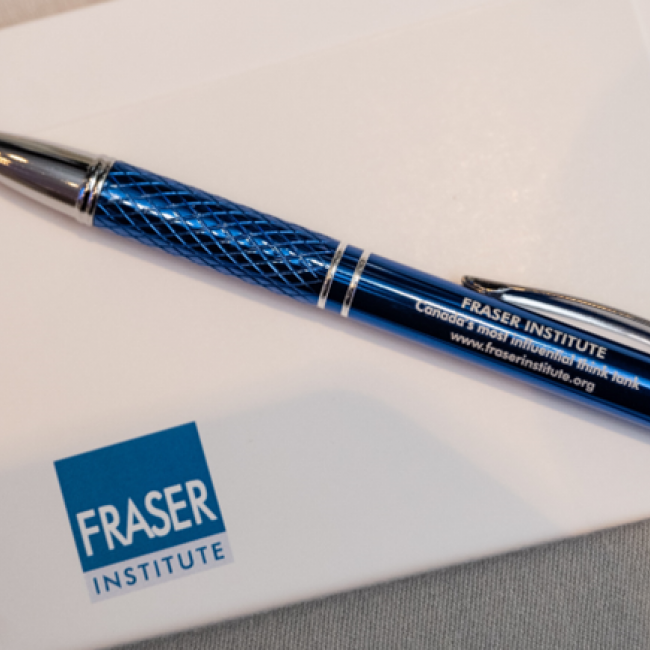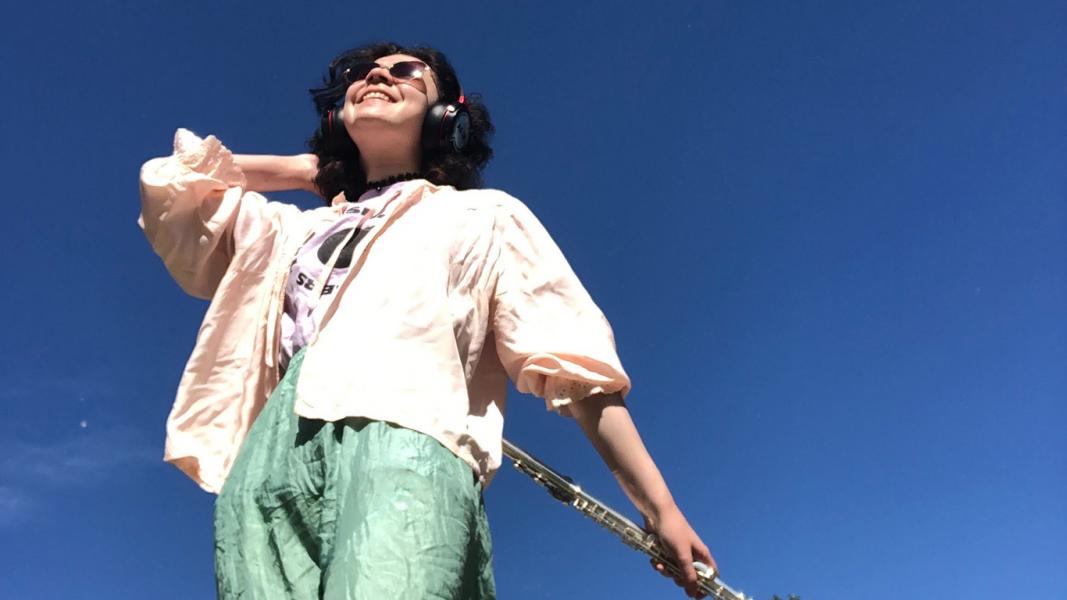
I’ve always been deeply fascinated with audio as a medium. After all, I’ve worked with it plenty–I picked up the flute at age 12, and music’s been playing nonstop in my life ever since. Not just performing, either: composition, production, sound design, even a bit of voice acting as a hobby.
This interest is actually one of the things that drew me to Communication as a major, specifically at SFU. I mean, how was I not going to fawn over the Sonic Research Studio? I’ve only been at SFU since 2020, but I can’t wait to take on courses all about sound, its history, and its potential applications in the field.
When it came time to work my second Co-op term, I was pretty sure I wanted something in the arts or the media. Not specifically sound–though in hindsight, that’s because I didn’t know it was a Co-op option. My last placement had been mostly with visual and written communication, and while I loved it, sound was a more neglected interest.
So, when I saw the post from SFU’s Vancity Office of Community Engagement, I was curious. It mentioned a podcast–and I didn’t even know SFU had a podcast. Alongside music and sound design, I love podcasts–I’ve seen my favourite, Welcome to Night Vale, perform live almost half a dozen times. It was one of those things I’d never considered, but got so excited about the second I saw it–after all, who gets to do their Co-op placement at a podcast?
Even better–the podcast itself, Below the Radar, was right up my alley. When asked what I want to do after university, I often say I want to work in some combination of arts, advocacy, and/or education. As it turned out, Below the Radar prioritized all three, being a “knowledge democracy podcast” that freely uplifts information on arts and culture, social and environmental justice, and urban issues.
In short: pretty much everything I was passionate about.
The interview was smooth as could be, and I got the job almost right away. Work began in January 2022.
Now, you may be wondering: what exactly does working at a podcast entail? After all, a lot of people see podcasts as someone talking into a microphone, doing some editing, and then sharing it with the world.
Honestly, even I was surprised by how many people were needed on the team to keep things running, and how many moving parts there were. For example, I didn’t start on the podcast itself at all–for the first month, I worked in metadata, social media, transcripts, and archiving
For those not in the know, metadata is a term for data that has information about other data. For Below the Radar, this looks like a whole number of integral parts in a released episode: the episode title, release date, URLs and file locations, a written description, and a biography for the episode’s interviewee. We also have a tagging system for episode topics, a list of readings and websites and other resources mentioned in or relevant to the episode, and a prewritten citation. One of my first assignments was actually writing citations for about 150 episodes! That sounds intimidating, but once I found a rhythm, it was easy enough to just listen to music and punch in titles, release dates, and episode links.
Another part of this process that isn’t technically metadata–but just as important–was penning the intro and outro of episodes. These are read at the start and end of every episode, summarizing the contents of the episode and resources in the episode description. They’re read out by coworkers and play alongside the theme music.
There’s also transcription, which is exactly what it sounds like–transcribing the audio of episodes so they can be accessible to everyone–and archiving, which is putting both the episode and transcript on SFU Summit, so students can access and cite it easily. I also dabble in outreach and social media work for events, from new episodes to upcoming presentations and lectures. Eventually, I even got to take on tech for my first episode recording! It’s not as scary as it sounds–I listen in on the interview, and make sure the audio quality is stable and everyone’s using their technology right.
It’s a lot of deep, meticulous work. But honestly? I can’t complain all that much. It’s fulfilling, in its own way. Over the months I’ve worked at the office, I’ve really internalized Below the Radar’s concept of “knowledge democracy.” Everything I do–the transcribing, the archiving, the outreach and posting, helping to record–makes important information accessible to the world at large. It feels especially poignant coming from a university, where it’s easy to forget what a privilege education is.
Also, sometimes I get to take on bigger projects–I’m using my skills as a musician to compose and produce the opening music for a themed series of episodes, and I’m going to co-host an episode later this year!
On its own, it’s so exciting being able to listen and write about everything from critical librarianship to pleasure activism. But knowing you get to uplift and share the ideas of others, ideas that might not have gotten such a platform otherwise, it’s so fulfilling. Overall, I’m overjoyed to have taken on this Co-op, and excited to continue my journey in the world of audio. It aligns with my values, it’s work I love to do, and I like to think it’s making a difference.
If you’re curious: you can listen to Below the Radar for free on your streaming platform of choice! Check it out.









